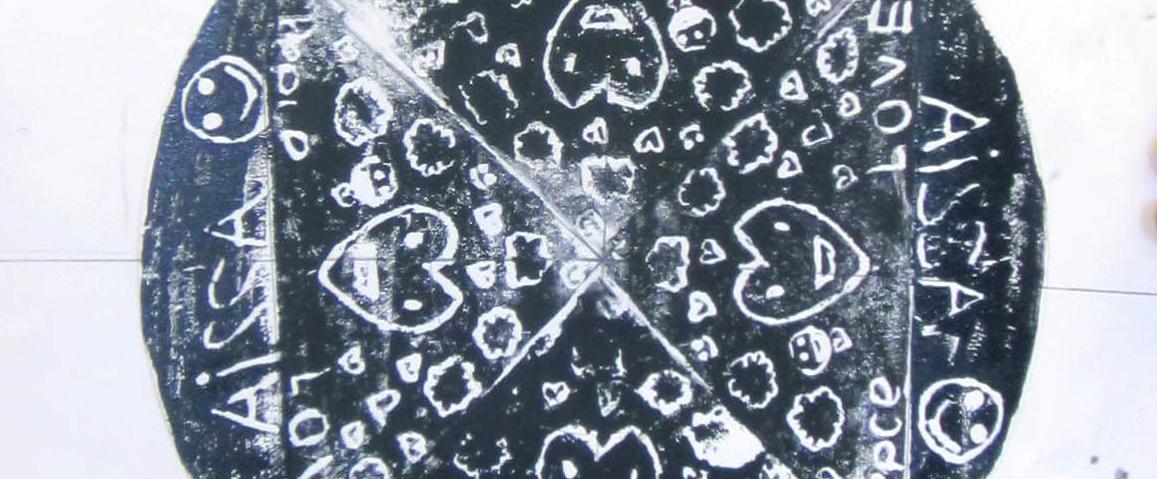
Math and Mandalas Virtual Residency
3-Session Enrichment
Math and Mandalas
A free, three-session program for NYCDOE Title 1 schools
Explore the mandala, a symbol of the universe, through the lens of mathematics. Over three sessions students will learn drafting techniques, at-home printmaking, and apply mathematical concepts to the art-making process to create their own printed mandalas. The program supports the Common Core State Standards for Mathematics and makes cross-curricular connections to social studies, ELA, and art.
For more information, please email education@rubinmuseum.org.
Math and Mandalas Virtual Residency FAQ
Session 1 and session 3 are 90-minute art-making sessions. Session 2 is a virtual art tour that lasts about one class period or 45 minutes.
- If you are participating as a group from the classroom, you will need a Smartboard or projector that is connected to a web-enabled device with a microphone and an internal or external camera.
- If students are joining from individual devices, they need to have access to Zoom (preferable) or Google Meet.
The Math and Mandalas Virtual Residency is a live program that is preferably hosted through the Rubin’s Zoom account. We understand that due to security concerns some schools may need to host the program through their own Zoom or Google Meet accounts, in which case they need to allow our team to have hosting/screen sharing capabilities.
Although we find it more successful to work with students when everyone can see each other, students are not required to have their cameras on.
SESSION 1
- Pencils x2
- Rulers or a straight-edge item like a book
- Any size paper, no smaller than letter size (8.5 x 11 in.)
- String, yarn, shoelaces, or ribbon
- Cup and bowl (optional) (edited)
SESSION 3
- Mandala blueprints created in session 1
- Plastic bag
- Markers or pens
- Scissors (optional)
For the safety of the students and the security of the educators, we ask that none of the sessions be recorded.
A Rubin teaching artist will be paired with you to lead all three sessions, along with a Rubin support staff member.
If you need to cancel the residency, we ask that you inform us 3 weeks before the first session, as this is a by-application program. You will work with your Rubin teaching artist to schedule each session, and if you need to reschedule an individual session, email them directly 2 weeks beforehand to schedule a new time.
We understand that video conferencing can be finicky and that internet connections are not always reliable, especially for remote learning. If a serious technology failure occurs in your classroom or with the Rubin teaching artist, we will work with you to reschedule your session(s).
We have a limited number of slots available each semester, so we try to limit each school to three classrooms per semester.
Every confirmed residency will have a planning meeting with the Rubin teaching artist and a member of the School and Family team at the Rubin. This will take place over video conference.
We are currently offering this residency for third- through twelfth-grade classes.
This program is made possible The Pierre and Tana Matisse Foundation.
Additional support for K-12 Programs has been provided by Agnes Gund and public funds from the New York City Department of Cultural Affairs in partnership with the City Council.



